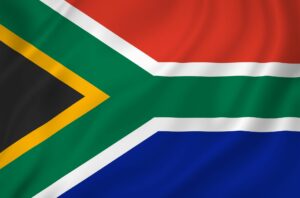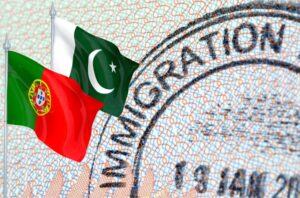Dominica real estate investment offers a unique blend of opportunity and tranquility for those looking to tap into the Caribbean market. As the Nature Island, Dominica is an emerging gem in property investment, combining its lush landscapes and pristine beaches with a stable and growing real estate market. Here, investors can discover affordable luxury, eco-conscious living, and attractive citizenship through investment options, which promise a serene lifestyle and a chance to partake in the island’s economic growth.
Whether you’re eyeing a family villa enveloped by rainforest or a beachfront commercial opportunity, Dominica‘s real estate landscape is ripe with potential for savvy investors. Join us as we delve into the ins and outs of making successful property investments in this enchanting Caribbean haven.
Dominica’s Real Estate Market
Key Features of Dominica’s Real Estate
Dominica, often called the Nature Island for its untouched natural beauty, lies between the French territories of Guadeloupe and Martinique in the Eastern Caribbean. The real estate market here boasts a mix of properties, including family villas and hotels, that blend seamlessly with the lush rainforests and pristine beachfront. Dominica’s coastline hasn’t been overdeveloped, unlike other Caribbean islands, offering you the chance to snag land or homes at more reasonable prices.
The west coast of Dominica is a hot spot for property seekers. Places like Portsmouth, Roseau, Soufrière, Salisbury, Calibishie, Marigot, and Castle Bruce are in high demand. Property prices in Dominica are generally affordable, with costs ranging from $500 to $5,000 per square meter.
Plus, the island has favorable property tax rates. Only properties in Roseau and Canefield are hit with an annual property tax of 1.25 percent of the market value. Rental income is taxed, too, but at a progressive rate that ranges from 15 to 35 percent.
Recent Trends in Property Investment
Dominica‘s real estate market has been stable and growing over the past few years, with an average annual appreciation rate of four percent. This steady climb in property values is partly due to the limited number of small luxury developments available to foreign investors.
Dominica’s infrastructure is built to be sustainable and in tune with the natural environment. Real estate options include secluded family homes and hotels by riverbanks and within the forest. If you’re looking to invest in Dominica’s real estate, you’ll need to go through several steps, like hiring a lawyer, drafting a Purchase and Sale contract, paying a deposit, getting a property valuation, and registering the property at the Land Registry.
The fees tied to real estate transactions include legal fees, and there’s an Alien Landholding License for foreign buyers not in the existing Citizenship by Investment (CBI) Program. You’ll also face judicial fees, an Assurance Fund Fee, Stamp Duty, and valuation fees.
The Impact of Citizenship by Investment Program
Dominica’s Citizenship by Investment Program (CBI) has greatly impacted the real estate market. Started in 1993, the program lets investors qualify for Dominican citizenship by investing in government-approved real estate. The minimum investment required is $200,000 in real estate shares, which you must hold for at least three years from when citizenship is granted.
Suppose you purchase real estate to qualify for citizenship by investment unit. In that case, you must hold the property for either three years or five years if the next buyer is also a citizenship by investment applicant. The CBI program has enabled investors to enjoy increased global mobility, offering visa-free travel to over 140 countries.
It also provides:
- Full residence status.
- Minimal taxation.
- The chance to hold multiple citizenships.
- The opportunity to contribute to the prosperity of a peaceful country.
The program doesn’t require successful applicants to open a bank account on the island, making the process even simpler. Government-authorized property projects eligible for the CBI program include hotels, luxury resorts, villas, eco-lodges, and condos.
These properties, especially tourist accommodations pre-approved by the government, offer the potential for rental income, which can average four percent of their value per year. The application process for the CBI program involves:
- Selecting pre-approved real estate projects.
- Choosing an authorized agent.
- Submitting an application.
- Undergoing due diligence.
- Attending a mandatory interview.
Additional fees for the CBI program include government fees, due diligence fees, processing fees, interview fees, passport fees, and Oath of Allegiance/Certificate of Naturalization fees. The Dominica government’s dedication to eco-conscious initiatives makes its real estate market especially appealing for environmentally conscious investors. The CBI program provides a direct route for investors to get second citizenship by investing in government-approved real estate projects, which are often luxury resorts, eco-friendly developments, or high-end properties.
There are no restrictions on real estate acquisition by foreign buyers in Dominica. The transfer laws are simple and clear-cut, making Dominic citizenship an attractive option for foreign investors looking to buy property and gain citizenship in this beautiful island nation.

Benefits of Investing in Dominica
Advantageous Citizenship by Investment Scheme
The CBI scheme facilitates the acquisition of dual citizenship and allows for the inclusion of a wider circle of family members, such as parents and grandparents, under the same application. Dependents can be added even after the initial grant of citizenship, providing flexibility for investors’ families. The application process is streamlined, with a dedicated unit overseeing it and a typical processing time of about three months.
Tax Incentives for Investors
Dominica’s tax system is designed to be investor-friendly, with no taxes on worldwide dividends, interest, capital gains tax, or royalties for its citizens. Additionally, there are no personal income taxes, capital gains taxes, or inheritance taxes levied on citizens, which can significantly increase the profitability of investments on the island.
Economic Stability and Growth Prospects
The country’s economy is characterized by its stability, with a currency pegged to the US dollar, consistent low inflation, and positive GDP growth. The political landscape is also stable, contributing to the nation’s reputation as a peaceful Caribbean destination.
The government’s pro-investment stance is reflected in its policies, which have led to commendable rankings in the World Bank’s Ease of Doing Business Index for the region. With initiatives like free trade zones and a commitment to renewable energy, aiming for complete reliance on renewable sources, the nation is positioning itself for sustainable economic growth.
Dominica’s environmental stewardship is evident in its conservation efforts, citizenship programs such as the establishment of marine protected areas, and sustainable agricultural practices. These initiatives enhance the desirability of investment properties, particularly those that cater to the eco-tourism market. By investing in local real estate, you contribute to the economy and support the growth of the tourism industry, which in turn benefits local commerce.

Types of Real Estate Investments in Dominica
Residential Properties Overview
The government’s stringent selection of projects for the CBI ensures that each is economically viable. As an investor, this translates to a curated selection of small luxury developments for consideration.
The island’s residential offerings are characterized by opulent family residences and hotels nestled within its verdant landscape or adjacent to its numerous rivers. The west coast is particularly sought after for its tranquil vistas of the Caribbean Sea. Portsmouth, Roseau, and Calibishie are among the most coveted locations.
Because the island is not a magnet for excessive tourism, beachfront properties remain more accessible price-wise compared to other Caribbean locales. Despite the more modest investment, these assets typically appreciate at a steady pace.
Outside of Roseau and Canefield, property tax is virtually nonexistent. For those renting out their properties, income tax rates on the rental earnings range from 15 to 35 percent.
Commercial Real Estate Opportunities
Dominica’s commercial sector presents attractive prospects, particularly within the tourism industry. The available resorts tend to be more intimate in scale, presenting opportunities for new projects, including beachfront developments. The CBI can be a pathway to investment, offering the option to purchase shares in government-sanctioned real estate, such as hotels and luxury resorts.
These commercial investments generally yield an average annual return of two to eight percent. The acquisition process for commercial properties is streamlined, with no requirement for foreign buyers to establish a local bank account unless they are outside the CBI.
Non-CBI participants must secure an Alien Landholding License, which incurs a fee equivalent to ten percent of the property’s value.
Land Acquisition for Development
The island’s relatively undeveloped beachfront presents a blank canvas for those with aspirations to create bespoke properties or commercial enterprises. The process for purchasing land mirrors that of acquiring built properties, necessitating a certified surveyor’s valuation and the completion of title transfer documentation.
Transaction costs for land include the following:
- Legal fees of about 3%
- A 15% VAT
- Judicial fees of 4%
- An Assurance Fund Fee of 1%
- Stamp Duty of 4%
Valuation fees are additional. The CBI provides an entry point for foreign investors, with a stipulation to retain the investment for a minimum of three years post-citizenship.
The option to sell the investment after five years under the CBI remains available. Government fees for the citizenship program begin at $25,000 for a single applicant, with incremental increases for families. Additional costs include due diligence, processing, interview, passport, and oath of allegiance fees. These expenses and the prospect of citizenship render investment in Dominica an appealing proposition for many.
Navigating Legal Requirements
Understanding Dominica’s Property Laws
Prospective investors must navigate the legal landscape. While the island nation is open to foreign investment, adherence to specific regulations is mandatory. For instance, the Alien Landholding License is a requirement for foreign entities looking to acquire more than one acre for personal use or in excess of three acres for commercial endeavors. This license is specific to the property in question and ensures compliance with local standards.
Process of Buying Real Estate
Identifying and securing a property involves a series of steps. After an offer is accepted, a lawyer is engaged to draft the Purchase and Sale Agreement. Subsequently, a surveyor assesses the property and prepares new Survey Plans. The initial deposit, typically 10% of the purchase price, is held in escrow. The remaining balance, along with all pertinent fees, is settled before signing a Memorandum of Transfer, which officially transfers ownership.
The seller is responsible for a stamp duty of 2.5%.
Role of Legal Representation in Transactions
Legal counsel plays a pivotal role in ensuring compliance with all requirements and safeguarding the buyer’s interests. Lawyers are instrumental in managing the escrow for the deposit and finalizing the Memorandum of Transfer.
Various residency options are available for those contemplating a move to Dominica. Temporary residence permits can be obtained for stays exceeding six months. After five years of renewal, one may apply for permanent residency. Citizenship through naturalization is possible after seven years of legal residence or five years for those married to a Dominican citizen.
The CBI scheme is another avenue for obtaining citizenship. The minimum investment is set at $200,000, regardless of family size. The fee structure varies with the number of dependents included in the application. Investing in Dominica’s real estate market is not only a pathway to citizenship but also offers the prospect of financial gains for future generations.

Maximizing Return on Investment
Investing in Dominica’s property market can be advantageous for those seeking to enhance their ROI. The CBI scheme is a significant draw, offering the chance for investors to gain a passport while profiting from their investment through rental or resale.
The affordability of the island’s real estate compared to other Caribbean destinations is an attractive feature for investors seeking a lower entry point. The lack of various taxes on wealth, gifts, and inheritance, along with the absence of property and capital gains taxes, enhances the appeal of these investments.
Rental income serves as an additional revenue stream for those interested in property management. Effective financial planning is essential to optimize the returns from your rental properties. Understanding the local market and meeting the demands of potential renters can increase occupancy rates and, consequently, rental income.
Investors must also consider the CBI’s requirements, which mandate a minimum holding period for real estate. Due to the five-year resale restriction under the CBI, a strategic long-term real estate investment option and plan are necessary.
Identifying areas with high demand is crucial for maximizing ROI. Locations with strong appeal to tourists and residents alike, such as Portsmouth and Roseau, may present more lucrative investment opportunities due to their potential for higher appreciation and rental yields.
The future of Dominica’s property market appears bright, with a consistent appreciation and sustained interest in the CBI. The variety of government-sanctioned property projects offers investors multiple avenues for investment, particularly in the burgeoning tourism sector.
For investors not involved in the CBI investment program, the option to acquire property through an Alien Landholding License broadens market accessibility, enhancing the positive trajectory of Dominica’s real estate market.
Your Pathway to Paradise
Dominica’s kaleidoscope of green mountains, cascading waterfalls, and serene beaches offers more than just a picturesque Caribbean escape; it presents a tangible investment opportunity in a stable and flourishing real estate market. With an alluring blend of fiscal incentives, citizenship prospects, and environmental stewardship, Dominica is not just a place to invest but a community to join and thrive in.
Whether you’re captivated by eco-friendly havens, dreaming of beachfront villas, or strategizing commercial ventures, the Nature Island navigates you towards both an investment in paradise and a privilege of citizenship. As home to a promising future for savvy investors and global citizens alike, Dominica awaits the unfolding of its splendor to those who choose to embrace it. Embark on this rewarding journey and anchor your roots in a nation that values growth, conservation, and welcoming new horizons.
FAQs
Can Americans Buy Real Estate In Dominica?
Yes, Americans can buy real estate in Dominica, including through the Dominica Citizenship by Investment Program. This program allows investors to obtain the Dominica citizenship program by purchasing government-approved real estate worth at least $200,000. This investment must be maintained for at least three years. Independent buyers not participating in the CBI program are also welcome but will need an Alien Landholding License, for which the fee is ten percent of the property value.
How Much Would It Cost To Build A House In Dominica?
The cost of building a house in Dominica varies widely based on location, materials, and the complexity of the project. While specific costs are not straightforward due to these variables, real estate in Dominica is generally more affordable compared to other Caribbean islands. A broad estimate puts the cost of island housing between $500 and $5,000 per square meter, with prices being higher in more sought-after areas such as Roseau, Portsmouth, Salisbury, and Canefield .
Where Is The Best Place To Live In Dominica?
The best place to live in Dominica depends on your preferences for lifestyle and amenities. Roseau, the capital, offers a mix of modern amenities, job opportunities, and access to nature. Portsmouth provides tranquility and is popular for whale-watching and diving. Soufrière offers affordable living and stunning views, Calibishie is known for its secluded villas and natural sights, and Marigot, with its beautiful beaches and proximity to the main airport, also ranks highly for those seeking access to nature and convenience.
What Is The Safest City In Dominica?
While specific crime statistics for each city in Dominica are not detailed, Dominica is generally considered safe for residents and travelers alike. However, as with any destination, it is wise to practice standard safety precautions. The capital, Roseau, with its higher population density and mix of locals and tourists, along with well-established expat communities in places like Portsmouth and the serene village of Soufrière, is considered safe and welcoming to foreigners. The overall safety in Dominica is enhanced by its close-knit communities and the peaceful nature of the island’s residents.





